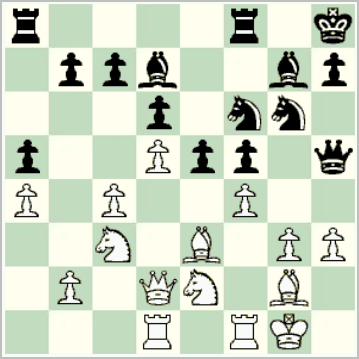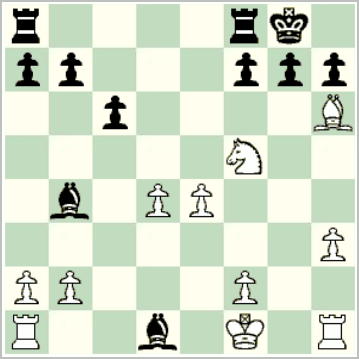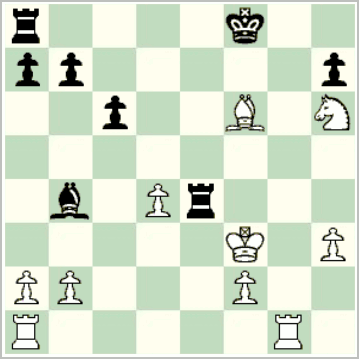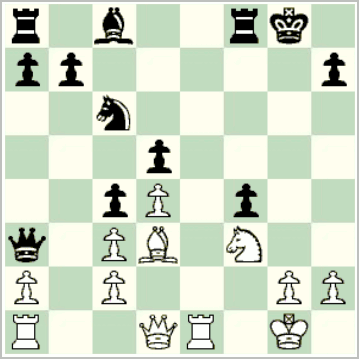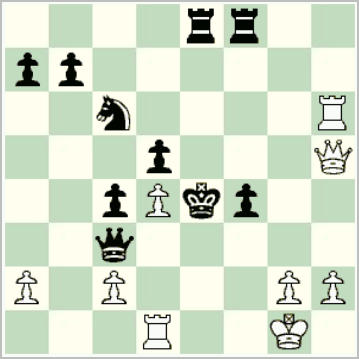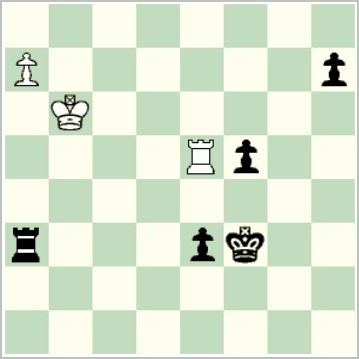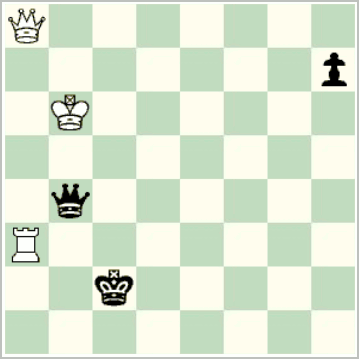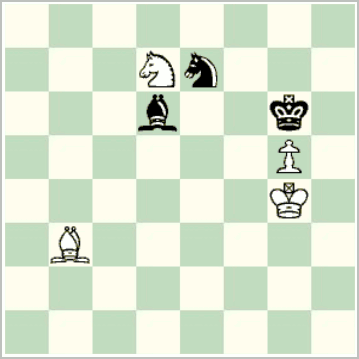The Irish 65+ Championship 2024 round 6 game between Tim Harding and Pat Reynolds reached the diagrammed position with White to play.
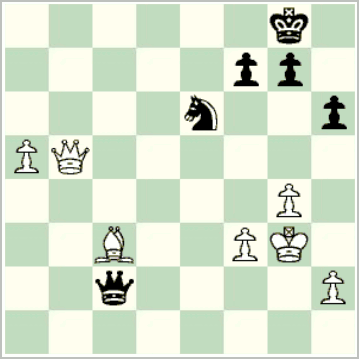
48. ?
While 48. Qe5 would leave White much better, the game continuation’s immediate simplification 48. Qe8+ Kh7 49. Qxf7 Qxc3 50. Qxe6 Qxa5 51. Qf5+ Qxf5 52. gxf5 is a definite win.
The game later reached the second diagrammed position, with White to play.
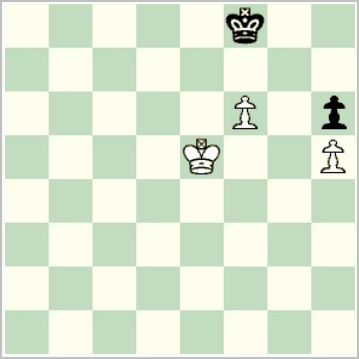
65. ?
White wins via ‘corresponding squares’. Black must be able to meet Kf5 with Kf7, and must be able to meet Ke6 with Ke8; the square f7 ‘corresponds to’ f5, and e8 corresponds to e6.
When the white king moves to e5, it can reach e6 or f5 in one move, so the black king must move to a square that can reach either e8 or f7 in one move; this can only be f8, so f8 corresponds to e5.
Continuing, the squares e8 and g8 both correspond to e4 and to f4. But e4 and f4 are one square apart, while e8 and g8 are two squares apart. White wins by moving the king to e4 and then f4, or vice versa, forcing Black to break the correspondence.
The game continued 65. Kf4 Kg8, and now 66. Ke4 would have won, after 66… Kf8 (66… Kf7 67. Kf5) 67. Ke5, when the second diagrammed position is reached, with Black to play, and White wins (67… Ke8 68. Ke6; 67… Kf7 68. Kf5).
The game ended instead 66. Ke5 Kf8 67. Ke6 Ke8 68. f7+?? (any other move preserves the win) 68… Kf8 69. Kf6 stalemate.
[Click to replay the full game.]
This ending appeared in classical endgame manuals in mirrored version, often attributed to a game Fahrni – Alapin. Edward Winter’s Chess Notes article The So-called Fahrni-Alapin Pawn Ending discusses the history of the position (questioning the attribution to Fahrni – Alapin, and tracing the analysis back at least as far as Emanuel Lasker’s Common Sense in Chess, 1st edition (1896)).

